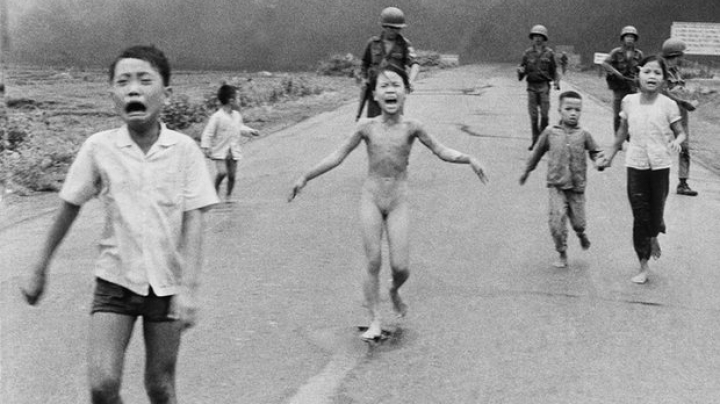Mark Zuckerberg accused of abusing power after Facebook deletes 'napalm girl' post

Norway’s largest newspaper has published a front-page open letter to Facebook CEO Mark Zuckerberg, lambasting the company’s decision to censor a historic photograph of the Vietnam war and calling on Zuckerberg to recognize and live up to his role as “the world’s most powerful editor”.
Espen Egil Hansen, the editor-in-chief and CEO of Aftenposten, accused Zuckerberg of thoughtlessly “abusing your power” over the social media site that has become a lynchpin of the distribution of news and information around the world, writing, “I am upset, disappointed – well, in fact even afraid – of what you are about to do to a mainstay of our democratic society.”
“I am worried that the world’s most important medium is limiting freedom instead of trying to extend it, and that this occasionally happens in an authoritarian way,” he added.
The controversy stems from Facebook’s decision to delete a post by Norwegian writer Tom Egeland that featured The Terror of War, a Pulitzer prize-winning photograph by Nick Ut that showed children – including the naked 9-year-old Kim Phúc – running away from a napalm attack during the Vietnam war. Egeland’s post discussed “seven photographs that changed the history of warfare” – a group to which the “napalm girl” image certainly belongs.
Egeland was subsequently suspended from Facebook. When Aftenposten reported on the suspension – using the same photograph in its article, which was then shared on the publication’s Facebook page – the newspaper received a message from Facebook asking it to “either remove or pixelize” the photograph.
“Any photographs of people displaying fully nude genitalia or buttocks, or fully nude female breast, will be removed,” the notice from Facebook explains.
Before Aftenposten could respond, Hansen writes, Facebook deleted the article and image from the newspaper’s Facebook page.
In his open letter, Hansen points out that Facebook’s decision to delete the photograph reveals a troubling inability to “distinguish between child pornography and famous war photographs”, as well as an unwillingness to “allow[ing] space for good judgement”.
“Even though I am editor-in-chief of Norway’s largest newspaper, I have to realize that you are restricting my room for exercising my editorial responsibility,” he wrote. “I think you are abusing your power, and I find it hard to believe that you have thought it through thoroughly.
Facebook’s popularity means that its algorithms can exert enormous power over public opinion.
Read more on The Guardian.